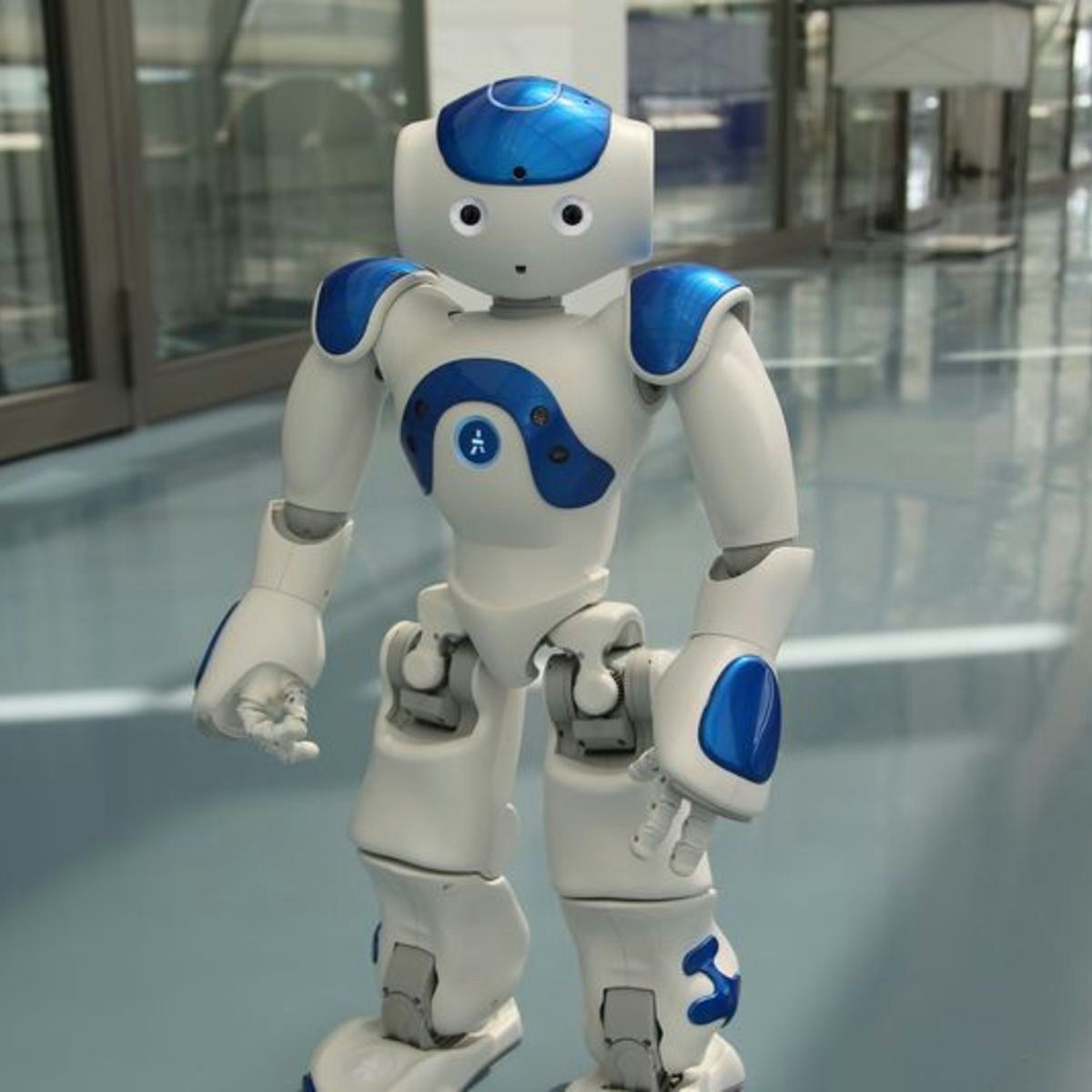Artificial Intelligence Specialist
Artificial Intelligence Specialist: A Comprehensive Career Guide
Artificial Intelligence (AI) Specialists are professionals who design, develop, implement, and maintain AI systems. They leverage techniques like machine learning, deep learning, and natural language processing to create solutions that can analyze data, make predictions, automate tasks, and mimic aspects of human intelligence. This field sits at the cutting edge of technology, transforming industries and creating new possibilities.
Working as an AI Specialist can be incredibly engaging. You might find yourself tackling complex problems, from developing algorithms that detect diseases in medical images to creating systems that power self-driving cars or personalized recommendation engines. The thrill lies in building intelligent systems that learn and adapt, pushing the boundaries of what machines can achieve and contributing to impactful innovations across various sectors.
Introduction to the Role of an Artificial Intelligence Specialist
Defining the Artificial Intelligence Specialist
An Artificial Intelligence Specialist is fundamentally a problem solver who uses AI techniques to build intelligent systems. Their work involves understanding complex challenges, identifying opportunities where AI can provide a solution, and then applying the appropriate algorithms and methodologies. This requires a blend of theoretical knowledge and practical skills.
The scope of the role can be broad. Some specialists focus on research, pushing the frontiers of AI theory and developing novel algorithms. Others are more applied, working as AI Engineers or Machine Learning Engineers to build, test, and deploy AI models in real-world applications. The specific title might vary, but the core involves deep expertise in AI concepts and tools.
Think of an AI Specialist as an architect and builder of intelligent software. They don't just write code; they design systems that can learn from data, recognize patterns, understand language, or make decisions. This requires a deep understanding of both the underlying mathematics and the practical engineering challenges involved in making AI work reliably and efficiently.
Where Do AI Specialists Work?
AI Specialists are in demand across nearly every major industry. Technology companies, from large corporations to innovative startups, are major employers, developing AI for everything from search engines and social media feeds to cloud computing services and consumer electronics. The tech sector constantly seeks experts to drive innovation.
Healthcare is another significant area, with specialists working on diagnostic tools, drug discovery, personalized medicine, and robotic surgery. The financial sector employs AI specialists for algorithmic trading, fraud detection, risk management, and customer service automation through chatbots. Opportunities abound in areas seeking data-driven insights and automation.
Furthermore, AI expertise is sought after in e-commerce for recommendation systems and logistics optimization, in automotive for autonomous driving systems, in entertainment for content generation and personalization, and even in agriculture for precision farming. Government and research institutions also employ AI specialists for various projects, including security and scientific discovery.
The Evolution of the AI Specialist Role
The field of Artificial Intelligence has existed for decades, but the role of the "AI Specialist" as we know it today has surged in recent years. Early AI focused more on symbolic reasoning and expert systems. The current boom is largely driven by advances in machine learning, particularly deep learning, fueled by increased computing power and vast amounts of data.
Initially, AI roles were often confined to academic research or specialized R&D labs within large corporations. Today, AI is becoming integrated into mainstream software development and business processes. This shift has created a need for professionals who can not only research AI but also build, deploy, and manage AI systems at scale.
The role continues to evolve rapidly. The rise of Generative AI models like ChatGPT and DALL-E has created new specializations focused on large language models and multimodal AI. Future AI Specialists will need to adapt continuously as new techniques, tools, and ethical considerations emerge, making lifelong learning a critical aspect of this career.
Key Responsibilities of an Artificial Intelligence Specialist
Designing and Implementing AI Models
A core responsibility is designing AI models tailored to specific problems. This involves selecting appropriate algorithms (e.g., decision trees, neural networks, support vector machines), defining model architectures, and choosing hyperparameters. The specialist must understand the trade-offs between different approaches in terms of performance, complexity, and computational cost.
Implementation follows design. Specialists write code, often using programming languages like Python and AI libraries such as TensorFlow or PyTorch, to build the models. This includes setting up the development environment, writing training scripts, and ensuring the code is efficient and maintainable. They translate theoretical concepts into working software.
This process is iterative. Specialists train the initial model, evaluate its performance, and then refine the design or implementation based on the results. This cycle of experimentation, testing, and improvement is central to developing effective AI solutions that meet the desired objectives.
These courses offer insights into building and training AI models using popular frameworks.
Data Preprocessing and Analysis
AI models are only as good as the data they are trained on. Therefore, a crucial task for AI Specialists is data preprocessing. This involves cleaning raw data by handling missing values, removing outliers, and correcting inconsistencies. It also includes transforming data into a suitable format for the chosen AI model.
Feature engineering is another key aspect of data preprocessing. This involves selecting the most relevant input variables (features) from the data or creating new features that can improve model performance. It requires domain knowledge and creativity to identify signals in the data that the model can effectively learn from.
Before and during model development, specialists perform exploratory data analysis (EDA). They use statistical methods and visualization tools to understand patterns, distributions, and relationships within the data. EDA helps inform model selection, feature engineering, and identifying potential biases in the dataset.
Collaboration Across Teams
AI Specialists rarely work in isolation. They frequently collaborate with various teams, including data engineers who build data pipelines, software engineers who integrate AI models into applications, and domain experts who provide context about the problem being solved. Effective communication is vital.
They must translate complex technical concepts into understandable terms for non-technical stakeholders, such as product managers or business leaders. Explaining model capabilities, limitations, and potential impact helps align expectations and ensures the AI solution meets business needs. Clear documentation is also essential.
Working with cross-functional teams often involves navigating different priorities and perspectives. AI Specialists need strong teamwork skills to integrate their work smoothly, manage dependencies, and contribute effectively to the overall project goals. Collaboration ensures the AI solution is not just technically sound but also practical and valuable.
Monitoring and Optimizing AI Systems
Deploying an AI model is not the final step. AI Specialists are responsible for monitoring the performance of models in production. This involves tracking key metrics, detecting performance degradation (model drift), and identifying unexpected behavior. Continuous monitoring ensures the AI system remains effective over time.
Based on monitoring results, specialists optimize deployed models. This might involve retraining the model with new data, adjusting hyperparameters, or even redesigning parts of the system. Optimization aims to improve accuracy, reduce latency, lower computational costs, or adapt the model to changing conditions.
They also troubleshoot issues that arise with production AI systems. This could involve diagnosing why a model is making incorrect predictions, addressing scalability problems, or fixing bugs in the implementation. Maintaining the health and reliability of AI systems is an ongoing responsibility.
This course touches upon model evaluation, a key part of monitoring and optimization.
Core Skills and Competencies for AI Specialists
Essential Technical Skills
Proficiency in programming, particularly Python, is fundamental. Python's extensive libraries for data science (like NumPy, Pandas) and AI (like Scikit-learn, TensorFlow, PyTorch) make it the industry standard. Familiarity with other languages like R, Java, or C++ can also be beneficial depending on the specific role or application.
A deep understanding of machine learning algorithms is crucial. This includes supervised learning (regression, classification), unsupervised learning (clustering, dimensionality reduction), and reinforcement learning. Specialists must know how these algorithms work, when to apply them, and how to evaluate their performance.
Expertise in deep learning and neural networks is increasingly important. This involves understanding various architectures like Convolutional Neural Networks (CNNs) for image data and Recurrent Neural Networks (RNNs) or Transformers for sequential data. Knowing how to design, train, and fine-tune these complex models is key.
These courses cover foundational concepts in Python, PyTorch, and neural networks.
These books offer practical guidance on implementing AI using Python.
Mathematical Foundations
A solid grasp of linear algebra is essential for understanding how many AI algorithms operate, particularly deep learning models which rely heavily on matrix and vector operations. Concepts like eigenvalues, eigenvectors, and matrix decomposition are frequently used.
Calculus, especially multivariate calculus, is necessary for understanding optimization algorithms like gradient descent, which are used to train most machine learning models. Understanding derivatives and gradients is fundamental to model training and optimization processes.
Probability theory and statistics form the bedrock of machine learning. Specialists need to understand probability distributions, statistical inference, hypothesis testing, and key metrics for evaluating model performance. This knowledge is vital for handling uncertainty and interpreting model results correctly.
This course covers linear algebra concepts relevant to AI.
Critical Soft Skills
Strong problem-solving abilities are paramount. AI Specialists must analyze complex problems, break them down into manageable parts, identify potential AI solutions, and handle unforeseen challenges during development and deployment. This requires analytical thinking and creativity.
Effective communication skills, both written and verbal, are vital. Specialists need to explain intricate technical details to diverse audiences, collaborate with team members, document their work clearly, and present findings to stakeholders. Bridging the gap between technical possibilities and business needs is crucial.
Curiosity and a commitment to continuous learning are essential in this rapidly evolving field. AI techniques and tools change quickly, requiring specialists to stay updated through reading research papers, taking courses, and experimenting with new technologies. Adaptability and a proactive learning mindset are key to long-term success.
The Importance of Domain Knowledge
While technical skills are foundational, understanding the specific industry or domain where AI is being applied significantly enhances an AI Specialist's effectiveness. Domain knowledge helps in understanding the nuances of the data, identifying relevant features, and interpreting model results in context.
For example, an AI Specialist working in healthcare benefits from understanding medical terminology, clinical workflows, and regulatory requirements. In finance, knowledge of market dynamics, financial instruments, and compliance standards is valuable. This context helps tailor AI solutions to specific needs.
Acquiring domain expertise often happens through experience on the job, collaboration with domain experts, or dedicated study. It allows specialists to ask better questions, design more relevant models, and ensure the AI solution truly addresses the underlying problem effectively and responsibly.
Formal Education Pathways
Undergraduate Degrees: Setting the Foundation
A bachelor's degree in Computer Science is a common starting point, providing a strong foundation in programming, algorithms, data structures, and mathematics. Many programs now offer specializations or elective tracks in AI or machine learning, allowing students to focus their studies early on.
Alternatively, degrees in related fields like Data Science, Statistics, Mathematics, or Engineering can also provide the necessary quantitative background. Some universities are now offering dedicated undergraduate programs specifically in Artificial Intelligence, providing a more focused curriculum from the outset.
Regardless of the specific major, a strong undergraduate curriculum for aspiring AI Specialists should include coursework in core computer science, advanced mathematics (linear algebra, calculus, probability, statistics), and introductory AI/machine learning concepts. Building a solid theoretical base is crucial.
Consider exploring foundational topics through online resources like those available on OpenCourser's Computer Science section.
Graduate Studies: Deepening Expertise
For many specialized AI roles, particularly in research or advanced development, a graduate degree (Master's or PhD) is often preferred or required. A Master's degree typically deepens knowledge in specific AI subfields like computer vision, NLP, or robotics, often involving coursework and a capstone project.
Master's programs can be thesis-based (research-focused) or non-thesis (coursework-focused). They provide advanced training and allow students to specialize, making them more competitive for specific AI roles. Many programs cater to working professionals, offering flexible schedules.
A PhD is essential for those aiming for research positions in academia or industrial R&D labs. It involves intensive, original research culminating in a dissertation. PhD programs develop deep expertise in a narrow subfield and contribute new knowledge to the AI community.
These courses provide introductions to AI, suitable for those considering further study.
These books offer comprehensive introductions and advanced perspectives on AI.
Certifications and Focused Training
Beyond traditional degrees, professional certifications can demonstrate expertise in specific AI platforms or tools. Major cloud providers like AWS, Google Cloud, and Microsoft Azure offer certifications focused on their AI and machine learning services. These are valuable for roles involving cloud-based AI deployment.
Certifications like the AWS Certified AI Practitioner or AWS Certified Machine Learning - Specialty validate skills in using specific cloud platforms for AI tasks. While not a substitute for foundational knowledge, they signal practical skills relevant to industry tools and can be beneficial for career advancement or transitions.
Specialized training programs and bootcamps, both online and in-person, offer intensive, focused learning experiences. These can be effective for acquiring specific skills quickly, particularly for those transitioning from related fields. However, rigor and quality vary, so careful research is needed.
These courses prepare learners for specific AI certifications.
Self-Directed Learning and Online Education in AI
Can Online Courses Build a Foundation?
Yes, online courses can be highly effective for building a foundational understanding of AI, especially for motivated self-learners or those supplementing formal education. Platforms offer courses covering everything from introductory Python programming and mathematics to advanced deep learning and specific AI applications.
Online learning provides flexibility, allowing individuals to learn at their own pace and on their own schedule. This is particularly beneficial for career changers or working professionals looking to upskill. Many courses offer hands-on exercises and projects, providing practical experience.
While online courses provide knowledge, building a strong foundation also requires dedication, discipline, and active engagement. Simply watching videos is insufficient; learners must practice coding, work through mathematical derivations, and apply concepts to projects to truly solidify their understanding. OpenCourser's Learner's Guide offers tips for structuring self-learning.
These foundational courses are excellent starting points available online.
Structuring Your Independent Learning Path
Creating a structured learning path is crucial for self-directed learners. Start with the fundamentals: programming (Python), essential math (linear algebra, calculus, probability/statistics), and core computer science concepts. Gradually progress to introductory machine learning principles and algorithms.
Once foundational knowledge is established, delve into specific AI areas of interest, such as deep learning, natural language processing, or computer vision. Choose online courses, tutorials, and projects that align with your learning goals. Mix theoretical courses with practical, hands-on workshops.
Set realistic goals and milestones. Break down large topics into smaller, manageable chunks. Regularly review and reinforce learned concepts. Engaging with online communities, forums, or study groups can provide support and motivation throughout the learning journey.
This book offers insights into structuring learning effectively.
Portfolio Development Through Projects
A portfolio of personal projects is essential for demonstrating practical AI skills, especially for those without extensive formal credentials or work experience. Projects showcase your ability to apply theoretical knowledge to solve real problems. Choose projects that align with your interests and career goals.
Start with smaller, guided projects often included in online courses. Gradually move towards more independent projects where you define the problem, gather data, select models, implement the solution, and document your process and results thoroughly. Use platforms like GitHub to showcase your code and project documentation.
Consider contributing to open-source AI projects or participating in online competitions (like those on Kaggle). These activities provide valuable experience, exposure to real-world challenges, and opportunities to collaborate with and learn from others in the field. A strong portfolio is often a key factor in job applications.
This course focuses on practical projects using Python.
Combining Online Learning with Experience
For professionals already working in related fields (like software engineering or data analysis), online learning can be a powerful way to pivot towards an AI specialization. You can apply newly learned AI concepts directly to projects within your current role, gaining practical experience immediately.
Look for opportunities within your organization to work on AI-related tasks or collaborate with AI teams. Even contributing in a smaller capacity can provide valuable exposure and help build relevant skills. Discuss your learning goals with your manager to explore potential internal opportunities.
The journey into AI, especially for career changers, requires patience and persistence. It's a challenging field that demands continuous effort. Embrace the learning process, celebrate small victories, and remember that building expertise takes time. Combining structured online learning with real-world application is a proven path to success.
Career Progression and Opportunities in AI
Entry-Level Roles and Starting Points
Common entry points into the AI field include roles like Junior AI Engineer, Machine Learning Engineer, or Data Scientist with an AI focus. These positions typically involve implementing models designed by senior specialists, data preprocessing, running experiments, and supporting the deployment of AI systems.
Another path involves roles adjacent to core AI development, such as Data Analyst or Software Engineer, where individuals can gradually build AI skills and transition into more specialized roles. Internships during university or participation in AI bootcamps can also provide pathways into entry-level positions.
These initial roles provide crucial hands-on experience with industry tools, workflows, and real-world data challenges. Success often depends on a strong technical foundation, eagerness to learn, and the ability to collaborate effectively within a team.
Mid-Career Specialization Paths
As AI Specialists gain experience, they often specialize in specific subfields. This could involve becoming an expert in Computer Vision, Natural Language Processing (NLP), Reinforcement Learning, Robotics, or AI Ethics. Specialization allows for deeper expertise and impact in a chosen area.
Mid-career professionals might take on more complex projects, lead small teams, mentor junior specialists, or contribute to the technical direction of AI initiatives. They may focus on developing novel algorithms, optimizing large-scale AI systems, or designing end-to-end AI solutions.
Continuous learning remains critical at this stage. Specialists need to stay abreast of the latest research and technological advancements within their chosen specialization. Attending conferences, publishing research, and contributing to the AI community become more common.
Leadership and Strategic Roles
Experienced AI Specialists can progress into leadership positions. This might involve roles like AI Team Lead, AI Architect, Principal AI Scientist, or Director of AI. These roles often shift focus from hands-on implementation to setting technical strategy, managing teams, and overseeing large-scale AI projects.
AI Architects design the overall structure of AI systems and platforms, ensuring scalability, reliability, and integration with other enterprise systems. AI Strategists work closely with business leaders to identify opportunities for AI adoption and align AI initiatives with organizational goals.
Leadership roles require not only deep technical expertise but also strong management, communication, and strategic thinking skills. Leaders must guide technical direction, foster innovation, manage resources effectively, and communicate the value of AI across the organization.
Entrepreneurial Opportunities in AI
The transformative potential of AI creates significant opportunities for entrepreneurship. Many AI Specialists leverage their expertise to found startups focused on developing novel AI products or services. This could involve creating AI-powered solutions for specific industries or building new AI platforms.
Starting an AI company requires not only technical prowess but also business acumen, fundraising skills, and the ability to build and lead a team. The startup environment is challenging but offers the potential for significant impact and reward by bringing innovative AI ideas to market.
Even within larger organizations, an entrepreneurial mindset is valuable. Specialists might champion new AI initiatives, develop internal tools, or identify innovative applications of AI that create business value. The ability to identify opportunities and drive innovation is highly prized.
Ethical Considerations in AI Development
Mitigating Bias in Algorithms
AI systems learn from data, and if that data reflects historical biases present in society, the models can perpetuate or even amplify those biases. AI Specialists have an ethical responsibility to identify and mitigate bias in datasets and algorithms to ensure fairness and prevent discriminatory outcomes.
Techniques for bias mitigation include careful data collection and curation, using fairness-aware algorithms, auditing models for biased predictions across different demographic groups, and implementing post-processing adjustments. Transparency about potential biases and limitations is also crucial.
Addressing bias is an ongoing challenge requiring careful consideration of context, potential harms, and the specific definition of fairness being applied. Collaboration with ethicists, social scientists, and affected communities is often necessary to develop truly equitable AI systems.
These resources address fairness and bias in AI.
Privacy and Data Governance
AI systems often require large amounts of data, raising significant privacy concerns. Specialists must be knowledgeable about data privacy regulations (like GDPR or CCPA) and implement techniques to protect sensitive information. This includes data anonymization, differential privacy, and secure data handling practices.
Data governance involves establishing clear policies and procedures for how data is collected, stored, used, and protected throughout the AI lifecycle. Ensuring compliance with these policies and maintaining data security are critical responsibilities for teams developing AI.
Transparency about data usage is key to building trust. Users should understand what data is being collected, how it's being used by AI systems, and what controls they have over their information. Balancing the need for data with the right to privacy is a constant ethical consideration.
This course covers privacy aspects related to AI.
Assessing Societal Impact
AI technologies can have profound societal impacts, both positive and negative. Specialists should consider the broader consequences of their work, including effects on employment, economic inequality, social interactions, and democratic processes. An ethical approach involves anticipating potential harms and designing systems responsibly.
This requires looking beyond immediate technical performance metrics and evaluating AI systems based on their real-world effects on individuals and communities. Engaging in public discourse, collaborating with policymakers, and advocating for responsible AI deployment are important aspects of this assessment.
Tools like impact assessments and ethical review boards can help systematically evaluate the potential societal consequences of AI projects before and during development. The goal is to ensure that AI development aligns with human values and contributes positively to society.
These books delve into the ethical dimensions of AI.
Regulatory Compliance and Frameworks
The legal and regulatory landscape for AI is rapidly evolving. AI Specialists need to stay informed about relevant laws and regulations governing AI development and deployment in their specific industry and geographic region. This includes rules related to data privacy, algorithmic transparency, and accountability.
Several organizations and governments are developing ethical frameworks and guidelines for responsible AI. Familiarity with these frameworks (e.g., from the OECD, European Union, IEEE) can help guide ethical decision-making and ensure compliance with emerging standards.
Implementing robust governance processes, maintaining thorough documentation, and ensuring systems are auditable are crucial for demonstrating compliance. Adherence to regulatory requirements and ethical best practices is not just a legal obligation but also essential for building public trust in AI technologies.
These resources explore ethical practices and legal issues.
Industry Applications and Market Demand
Current AI Adoption Across Sectors
AI adoption is widespread and growing across numerous sectors. In retail and e-commerce, AI powers recommendation engines, personalized marketing, dynamic pricing, and supply chain optimization. Financial services leverage AI for fraud detection, algorithmic trading, credit scoring, and customer service chatbots.
Healthcare utilizes AI for medical image analysis, disease diagnosis, drug discovery, and robotic-assisted surgery. Manufacturing employs AI for predictive maintenance, quality control, and optimizing production processes. Transportation is heavily investing in AI for autonomous vehicles and traffic management systems.
Entertainment and media use AI for content recommendation, automated content generation, and audience analytics. According to reports like McKinsey's State of AI, adoption continues to accelerate, particularly with the rise of generative AI, indicating broad integration into core business functions.
Emerging Application Areas
Beyond established uses, AI is finding applications in new and exciting areas. Climate science uses AI to model climate change impacts, optimize renewable energy grids, and develop sustainable materials. Education is exploring AI for personalized learning platforms, automated grading, and intelligent tutoring systems.
Scientific discovery benefits from AI in analyzing complex datasets from fields like genomics, astronomy, and materials science, accelerating research breakthroughs. Agriculture employs AI for precision farming, crop monitoring, and autonomous harvesting. AI is also making inroads into creative fields like music composition and art generation.
The development of more sophisticated AI, particularly generative models and reinforcement learning, continues to open doors for novel applications. As the technology matures, AI specialists will find opportunities to apply their skills in increasingly diverse and impactful ways across society.
Geographic Demand and Market Competitiveness
Demand for AI specialists is global, but certain regions have higher concentrations of opportunities. Major technology hubs like Silicon Valley, Seattle, New York, London, Toronto, Beijing, and Bangalore are epicenters of AI development and recruitment. However, demand is growing in many other cities and countries as AI adoption becomes more widespread.
The job market for skilled AI professionals is highly competitive. Companies seek individuals with strong technical skills, relevant experience (often demonstrated through projects or prior roles), and often advanced degrees. Continuous learning and staying current with the latest advancements are crucial for maintaining competitiveness.
Remote work opportunities have expanded the geographic reach for AI talent, allowing specialists to work for companies located elsewhere. However, competition remains high, emphasizing the need for a strong skill set and a compelling portfolio or resume.
Salary Expectations for AI Specialists
Salaries for AI Specialists are generally high, reflecting the strong demand and specialized skills required. Compensation varies significantly based on factors like location, years of experience, level of education (B.S., M.S., PhD), specific role (e.g., engineer vs. researcher), industry, and company size.
Entry-level positions typically offer competitive salaries, often exceeding those in general software engineering roles. Mid-career and senior specialists, especially those with PhDs or significant impactful experience, can command substantial compensation packages, including base salary, bonuses, and stock options, particularly in major tech hubs.
According to the U.S. Bureau of Labor Statistics, related roles like Computer and Information Research Scientists (which includes many AI researchers) show strong projected growth and high median pay. While specific "AI Specialist" data may vary, overall trends indicate a lucrative and growing field for qualified professionals.
Challenges and Future Trends in AI
Addressing Technical Limitations
Despite rapid progress, current AI systems face limitations. Many models require vast amounts of labeled data for training, which can be expensive and time-consuming to acquire. Models can also be brittle, failing unexpectedly when encountering data slightly different from their training distribution.
Explainability remains a challenge, particularly for complex deep learning models. Understanding *why* an AI makes a particular decision (its reasoning process) is difficult but crucial for building trust and debugging errors, especially in high-stakes applications like healthcare or finance. Research into interpretable AI is ongoing.
Generalization and common-sense reasoning are other hurdles. While AI excels at specific tasks, achieving human-like adaptability and understanding across diverse situations remains elusive. Overcoming these limitations is a key focus of ongoing AI research.
The Evolution of Generative AI
Generative AI, capable of creating text, images, code, and other content, represents a major trend. Models like GPT-4, Claude, and Stable Diffusion are transforming industries from content creation to software development. AI Specialists are increasingly working with or developing these large models.
Future trends include developing more efficient, controllable, and multimodal generative models (handling text, images, audio simultaneously). Addressing ethical concerns around misinformation, copyright, and bias generated by these models is also a critical area of focus for specialists and researchers.
The rise of generative AI creates new roles focused on prompt engineering, fine-tuning large models, and building applications that leverage generative capabilities. Specialists need to understand the underlying technology (like the Transformer architecture) and its rapidly evolving ecosystem.
Potential Impact of Quantum Computing
Quantum computing, while still in its early stages, holds the potential to revolutionize certain types of computation, including aspects relevant to AI. Quantum algorithms could potentially accelerate specific machine learning tasks, such as optimization or factoring large numbers (relevant to cryptography).
The field of Quantum Machine Learning (QML) explores the intersection of these two domains. While practical, large-scale quantum computers are likely years away, AI specialists, particularly those in research, may benefit from understanding the fundamentals of quantum computing and its potential implications for AI algorithms.
Currently, the impact is more theoretical than practical for most AI roles. However, it represents a long-term trend that could significantly alter the computational landscape for AI in the future, requiring adaptability from professionals in the field.
Career Sustainability and Lifelong Learning
The field of AI is characterized by rapid technological change. Techniques, tools, and even entire subfields can emerge or become obsolete relatively quickly. This necessitates a strong commitment to lifelong learning for career sustainability as an AI Specialist.
Staying current requires regularly reading research papers, following industry news, taking online courses on new techniques, experimenting with new tools, and engaging with the broader AI community. Adaptability and the ability to quickly learn new concepts are crucial traits.
While some tasks within AI might eventually be automated by AI itself, the need for human specialists to design, oversee, interpret, and ethically guide AI systems is likely to persist and evolve. Focusing on fundamental principles, critical thinking, and complex problem-solving skills provides a more durable foundation than expertise in any single tool or technique.
These books touch upon the future and evolving nature of AI.
Frequently Asked Questions about Becoming an AI Specialist
Can I enter the AI field without a Computer Science degree?
Yes, it is possible, though often more challenging. A strong quantitative background is essential. Degrees in fields like Statistics, Mathematics, Physics, Engineering, or even Economics can provide the necessary foundation, especially if supplemented with programming skills and dedicated AI/ML coursework (often through online learning or bootcamps).
Demonstrating practical skills through a strong portfolio of projects becomes even more critical for those without a traditional CS background. Certifications in specific AI tools or platforms can also help bolster a resume. Networking and gaining relevant experience, perhaps through internships or transitioning from a related role like data analysis, are key strategies.
Ultimately, employers look for evidence of strong analytical abilities, programming proficiency, understanding of AI/ML concepts, and the ability to apply them. While a CS degree provides a common pathway, demonstrating these competencies through other means is achievable with dedication and a structured learning approach.
How competitive is the job market for AI Specialists?
The job market is generally very competitive, especially for entry-level positions and roles at top technology companies or research labs. Demand is high, but the supply of qualified candidates with the necessary blend of theoretical knowledge and practical skills is also growing.
Competition often intensifies for roles requiring advanced degrees (PhD) or specialized expertise in cutting-edge areas. Having a strong academic record, publications (for research roles), significant project experience, and proficiency in sought-after skills (like deep learning frameworks) enhances competitiveness.
Networking, tailoring applications to specific roles, and preparing thoroughly for technical interviews (which often involve coding challenges, algorithm questions, and system design problems) are crucial for navigating the competitive landscape successfully.
What's the difference between an AI Specialist and a Data Scientist?
There is significant overlap, and titles can be fluid. However, Data Scientists often have a broader focus on extracting insights from data using various statistical and computational methods, including but not limited to machine learning. Their role might involve more exploratory data analysis, data visualization, and communicating findings to business stakeholders.
AI Specialists (or AI/ML Engineers) typically have a deeper focus on designing, building, and deploying machine learning models and AI systems. Their work might be more concentrated on algorithm selection, model optimization, software engineering aspects of AI implementation, and managing the lifecycle of AI models in production.
Think of it as a spectrum: Data Science often emphasizes analysis and insight generation, while AI Specialization leans more towards building intelligent systems. However, many roles blend aspects of both, and individuals might transition between these areas. Explore course descriptions on OpenCourser's Data Science section to see the overlap.
Is AI expertise itself at risk of being automated?
While AI tools can automate certain tasks involved in AI development (like hyperparameter tuning or even code generation), the role of the human AI Specialist is unlikely to disappear soon. Higher-level tasks requiring creativity, critical thinking, complex problem formulation, ethical judgment, and strategic oversight remain firmly in the human domain.
AI tools will likely augment, rather than replace, AI specialists, handling more routine tasks and allowing humans to focus on more complex challenges. The nature of the role will evolve, requiring specialists to become proficient in using these AI-powered tools effectively.
The need for individuals who can understand business problems, translate them into AI tasks, interpret results, ensure ethical deployment, and guide the overall direction of AI development will persist. Adaptability and focusing on higher-order skills are key to long-term relevance.
How important are academic publications for career advancement?
The importance of publications varies significantly depending on the career path. For research roles in academia or industrial R&D labs (e.g., Google Research, Meta AI), a strong publication record in top-tier AI conferences (like NeurIPS, ICML, CVPR) is often essential for hiring and advancement.
For most applied AI roles (e.g., AI/ML Engineer, applied scientist), publications are generally less critical than practical skills, project experience, and proficiency with industry tools. While publications can be a positive signal, a strong portfolio and successful project deliveries often carry more weight.
However, engaging with research, even without publishing, is beneficial for staying current. Contributing to open-source projects, writing technical blog posts, or presenting at industry conferences can also be effective ways to demonstrate expertise and contribute to the community, aiding career progression.
What hardware/software investments are needed for independent learning?
For starting out, a reasonably modern laptop or desktop computer is sufficient for learning programming fundamentals, basic data analysis, and running simpler machine learning models. Access to standard software like a code editor (e.g., VS Code), Python distribution (e.g., Anaconda), and version control (Git) is necessary.
Training complex deep learning models often requires significant computational power, specifically GPUs (Graphics Processing Units). Investing in a high-end personal GPU can be expensive. Fortunately, cloud platforms (Google Cloud, AWS, Azure) offer access to powerful GPUs on a pay-as-you-go basis.
Many online platforms, like Google Colab, also provide free (though limited) access to GPU resources, which is often sufficient for learning purposes and smaller projects. Therefore, significant upfront hardware investment is not strictly necessary to begin learning and experimenting with AI.
Concluding Thoughts
Embarking on a career as an Artificial Intelligence Specialist is a challenging yet potentially rewarding journey into one of technology's most dynamic and impactful fields. It demands a strong technical foundation, continuous learning, and a blend of analytical and creative problem-solving skills. While the path requires dedication, the opportunities to contribute to cutting-edge innovations and solve meaningful problems are immense. Whether you are starting your educational journey, considering a career pivot, or looking to deepen your expertise, the world of AI offers a landscape rich with possibilities for those willing to engage with its complexities and potential.




























